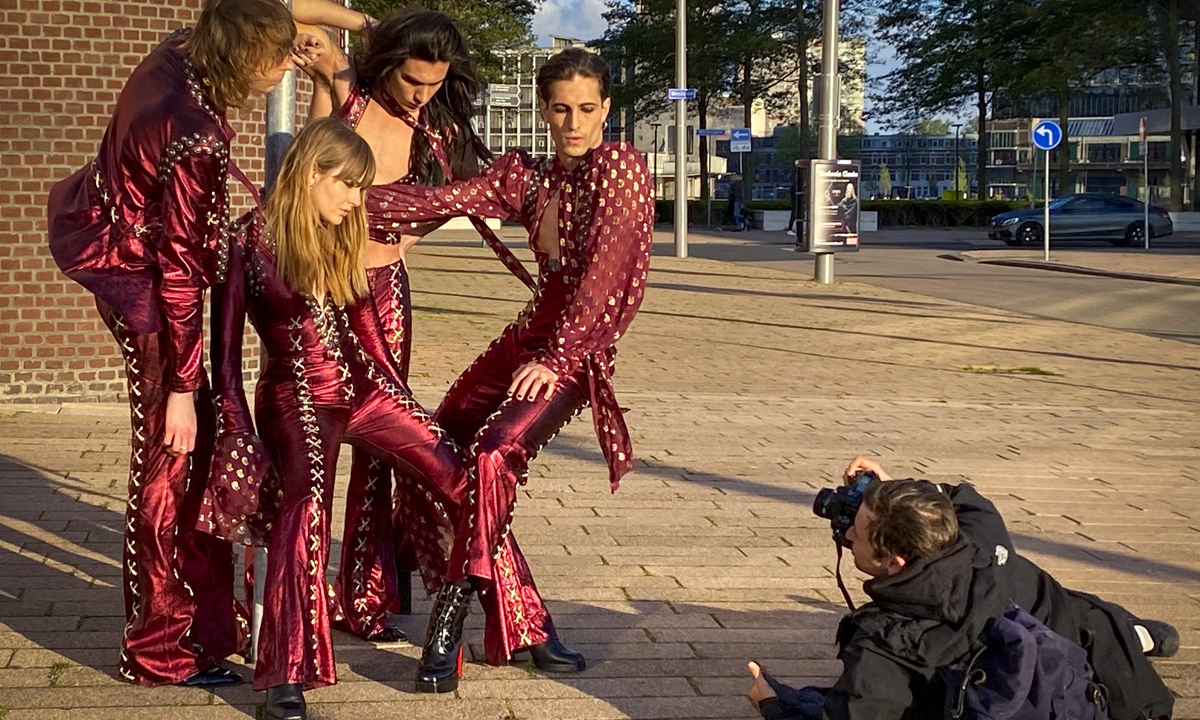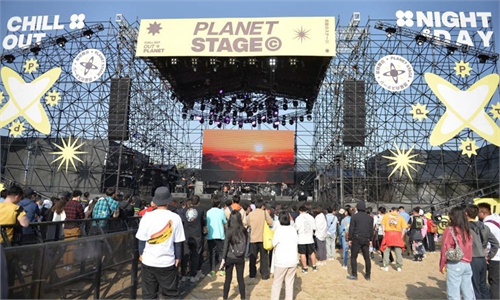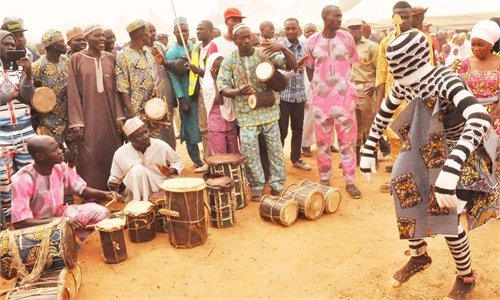ARTS / MUSIC
Italian rockers Maneskin win pandemic-defying Eurovision
Message of hope

A photographer takes a picture of the Italian band Måneskin outside a hotel in Rotterdam on Thursday. Photo: AFP
Italian rock foursome Maneskin won the Eurovision Song Contest in Rotterdam on Saturday in a glammed-up message of hope for a world emerging from the coronavirus pandemic.As the tournament returned after a year off because of the virus, the high-kicking, lederhosen-wearing Italians beat off stiff competition from France and Switzerland with their song "Zitti e Buoni."
Italy's third Eurovision win and its first since 1990 came after a nail-biting end to the kitschy competition, which went ahead amid strict protocols including mass testing and an audience limited to 3,500 people.
The theme of the year 2021's Eurovision was "Open Up," and the Dutch government-backed coronavirus restrictions could be a model for mass events such as Euro 2020 and the Tokyo Olympics.
Maneskin, featuring three men and one woman, said the whole evening of stomping songs and flamboyant costumes would bring cheer after more than a year of COVID-19.
"We think that the whole event was a relief," singer Damiano David said after showering his bandmates with champagne.
"It was really incredible, the whole event, this Eurovision is going to be a lighthouse."
Bassist Victoria de Angelis said their victory "could be a message of hope" to Italy, which was one of the countries in Europe hardest hit by the virus.
"We're honored to be bringing it back after 31 years," she said of the Eurovision title.
But there was heartbreak for French singer Barbara Pravi, who came agonizingly close to ending her country's 44 years of hurt since its last Eurovision win with her moody number "Voila."
In a battle of contrasts, her emotional Edith Piaf-style performance on a dark stage went up against the Italians' bare-chested, punk-funk rock. Both sang in their native languages.
A nail-biting finish ensured as Maneskin lay in fourth place after a vote by national juries that left Switzerland in the lead, before a huge public vote sent them soaring into the lead with 524 points.
"Rock and roll never dies," singer David shouted as he picked up the microphone-shaped glass Eurovision trophy.
He later strongly denied taking drugs, after footage on social media showed him bent over a table during the competition. "I don't use drugs. Please, guys. Don't say that really, no cocaine," he told the press conference.
The band's name comes from the Danish word for moonlight, as De Angelis is half Danish and they honed their craft by busking before taking part in talent show X Factor in 2017.
Switzerland's Gjon Muharremaj, 22, was the surprise package of the night, ending up in third place with the Sam Smith-style ballad "Tout l'Univers."
Britain, which remains in Eurovision despite leaving the European Union, meanwhile suffered the humiliation of achieving the dreaded "nul points," winning none from either the juries or the public.
But the mood of the love-it or hate-it extravaganza was relentlessly upbeat.
Other highlights included Norway's contestant Tix, who took to the stage in huge white angel wings.
Cyprus' entry "El Diablo" (Spanish for "The Devil") was meanwhile accused of blasphemy and satanism by the Cyprus Orthodox Church and religious groups.
Fans turned out despite COVID-19 restrictions.
"I think it's the beginning of a new start," Saskia Scharree, 51, wearing a white and orange blazer decorated with traditional blue Dutch pottery designs, told AFP outside the arena.
Flag-waving Finnish fan Oona Sainio, 27, said she and her family had come to soak up the atmosphere despite not having tickets.
"We're big Eurovision fans and we wanted to be close to where it's all happening," said Sainio, 27, who lives in the Netherlands.



